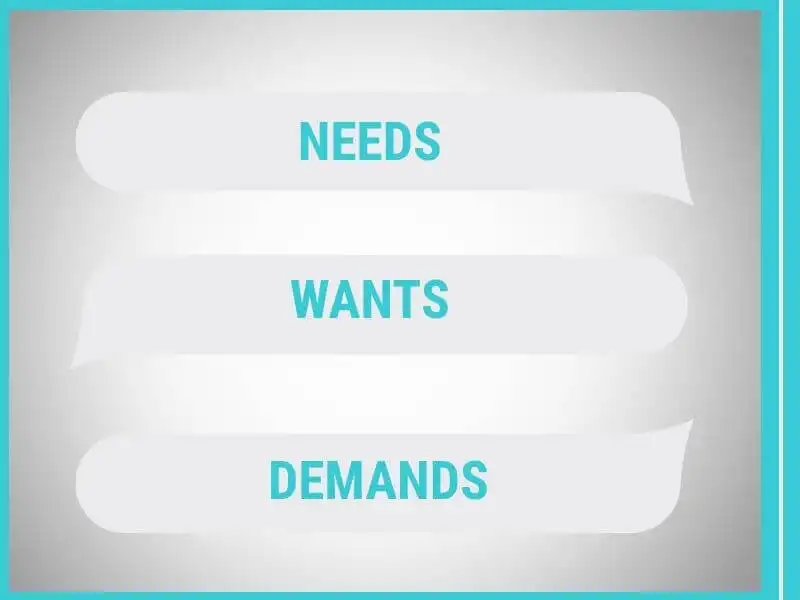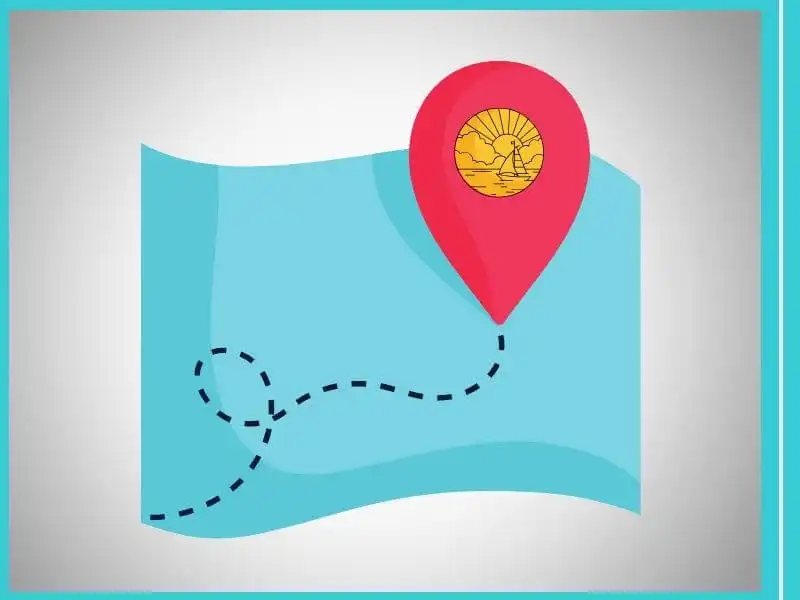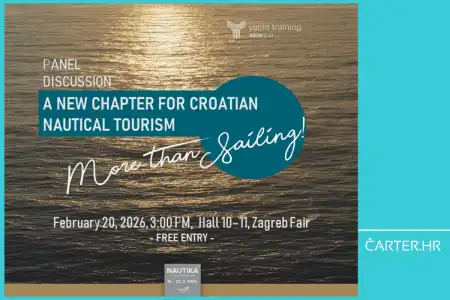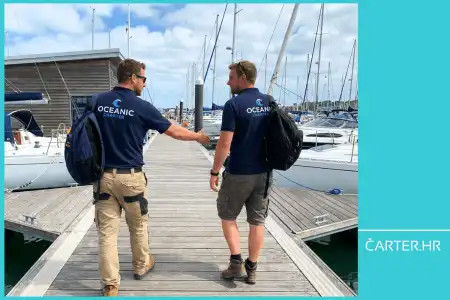
- 15.07.2025.
- News, Marketing, User experience
Andreja Fazlić, in her new article, introduces new foundations of marketing for the yacht charter industry. After almost 20 years of working in digital marketing and business, she reveals why many yacht charter companies lack stability, how to recognize what guests really want, and why customer experience is the key to long-term growth and loyalty.
Does your yacht charter brand stand out in a sea of competition?
The brutal truth is that many brands don’t know who they are, why they exist, what they represent, and even less how to tell that story to the world. Are you one of them?
Throughout nearly 20 years of my career in digital marketing and business, I have worked with many entrepreneurs, marketing or sales managers, growing organizations, civil associations, and startups. One thing is common to many of them – they lack stable strategic foundations – the very thing that makes marketing consistent, recognizable, and focused on the right customers.
Proper understanding is always essential for correct and effective application of knowledge, and understanding basic marketing concepts is key to building a recognizable brand and long-term relationships with guests. I found inspiration for this article in Principles of Marketing (Kotler, Wong, Saunders, Armstrong), a global textbook that has been used as a cornerstone of marketing education for 45 years, as well as in my previous articles. It is said for a reason – repetition is the mother of learning.
Where is the focus of your business today – on what you offer or on what the customer needs?
One of the main challenges for domestic yacht charter companies is shifting focus from the product or service to the customer.
This process becomes even more complex when you realize that the user and the customer are not always the same person, especially in a B2B environment (e.g., an agent books a boat for a client). That’s why it’s important to differentiate these basic concepts in the sales process:
- User
- Customer
- Decision-maker
- Influencer
Clearly defining these roles allows for more precise planning and a better business and marketing-sales strategy.
- A product-centric business emphasizes product development and innovation but often overlooks the real needs of the market, which can lead to weaker sales and loyalty.
- A customer-centric business builds strong connections with customers and continuously adapts offerings to their needs but requires greater investment in customization and may slow down innovation.
- A user-centric approach goes a step further, placing customer experience at the center of all activities, enabling personalized interactions and long-term value.

Needs, wants and demand – do you know what truly drives your guests?
Marketing in yacht charter is not and should not be just about filling boats. It is a process of creating value and building relationships with guests. But when we look at what is happening in our small market, it becomes very clear how underdeveloped and unmotivating it actually is because the only lever pushing this vertical forward and the only “value” that is consistently being created is – price dumping.
If you believe it is time for your marketing to grow up and mature, and for you to grow along with it, consider the following concepts (if they are not yet part of your marketing strategies and plans, it is high time):
- Needs: Guests seek safety, comfort, an authentic sailing experience, quality support and transparency in communication. Guests choose your fleet (or don’t) because they want reliable equipment, safety at sea and 24/7 support.
- Wants: The way guests want to meet their needs – a luxury sailing yacht, personalized itinerary, local experiences, eco-friendly options. One guest wants a premium catamaran with a private skipper, another looks for an authentic gastronomic tour of the islands.
- Demand: When a want, supported by the ability to pay, turns into a booking. A guest decides to pay more for a personalized service and a local guide because they believe they will get a unique experience.
Do you know which level of needs your yacht charter offer responds to? And where does your ideal guest currently stand on Maslow’s hierarchy of needs?
User-centric approach, or why is customer experience crucial for growth?
Guests, and customers in general, are more sophisticated today than ever. They have access to information, high expectations and want more than just the functionality of a product.
According to a PwC study, as many as 73% of consumers consider customer experience crucial in their purchase decision, and companies that invest in customer experience achieve greater revenue growth and loyalty (Forrester).
User-centric business means:
- Accurately defining who your ideal customers and users are (not just demographically, but also psychographically).
- Holistically understanding their motivations, goals and challenges.
- Adapting your offer and communication to each customer segment (without an adequate CRM tool this will feel like “carving land out of stone,” so be prepared).

Customer journey mapping is the foundation for innovation and growth
Customer journey mapping allows you to understand all the touchpoints a guest has with your brand, from the first contact to post-purchase support.
Every stage of the journey is an opportunity to optimize the experience and build relationships.
Key steps:
- Identify all stages and touchpoints of the customer journey.
- Analyze needs, expectations and possible obstacles at each stage.
- Adjust processes and communication for each stage separately to create an exceptional experience.
Why? Because companies that focus their strategy on customer experience can achieve up to 54% higher ROI (HubSpot).
Your marketing offers can be more than just the boat
Your offer is not just a vessel but the entire experience and values you provide to the guest:
- Functional value: Technical reliability, equipment, easy booking, support during the trip.
- Emotional value: A sense of freedom, relaxation, safety and belonging to the sailing community.
- Symbolic value: Status, prestige, the feeling that the guest is living “the Mediterranean dream.”
Guests often come for the boat but return for the sense of trust, personalized approach and support you provided during their sailing experience.
We all know this when we are in the role of a customer. It is truly puzzling to understand how those same customers, when in the role of marketing managers, directors or any position responsible for business growth, somehow let that knowledge evaporate.

Value and satisfaction are the reasons why guests remain loyal
In marketing, according to Kotler, value and satisfaction are fundamental concepts for understanding and building long-term relationships with guests.
Customer value:
Value is what a guest perceives they are receiving in exchange for what they invest, not only in money but also in time, effort and emotions. Your support during the trip, local tips and quick solutions to every challenge make the guest feel they received more than expected.
Satisfaction:
Satisfaction occurs when delivery meets or exceeds expectations. For example, the guest is thrilled because you organized a trip to a hidden island or recommended an authentic konoba. It is precisely satisfaction that is the fundamental reason someone makes a repeat booking or recommends you to others.
Exchange and relationships are the heart of every successful marketing
The goal is not (and should not be) a one-time booking but a long-term exchange of value. The guest is at the center of the business, whether you choose to accept it or not.
And if you finally want to start building such valuable relationships with your customers, pay attention to:
- Personalization, because more important than the guest’s name is knowing what they truly need and when.
- Empathy and helpfulness, because people can sense when you are nervous, when you are working half-heartedly, etc. If you want to be noticed by the customer, be quick and mindful of the tone of communication and your attitude; flexibility is also crucial.
- Consistency and transparency in every interaction.
- Proactive care, so the guest feels important even when they are not sailing with you. A guest who feels you are “there for them” even off-season will gladly recommend you and return next year.

A concrete step for you and your new marketing
Do a simple exercise, alone or with your team, and write down on paper or digitally the answers to the following questions:
- Which fundamental needs do you meet (safety, experience, support)?
- Which desires shape those needs for your guests (luxury, authenticity, sustainability)?
- What motivates them to make a booking?
- What value do you offer them on a functional, emotional and symbolic level?
This exercise is the first step toward creating an offer that truly resonates with your audience while setting you apart from the sea of similar yacht charter brands.
Marketing, in any industry including the yacht charter industry, is not a trick, not smoke and mirrors, but a process of understanding people and creating value. Listen to your guests, learn from every experience and build relationships that last.
And if you need support – reach out to us! Because transforming from product-centric to user-centric business brings long-term value, competitive advantage and revenue growth.
It is still not too late for your brand and business to take this path.
Categories of trends
- News
- Sale
- Marketing
- SEO
- Web design
- Social media
- Technology
- Regulations
- Management
- Education
- Finances
- User experience
Newsletter
Sign up for the newsletter and receive the latest trends and tips straight to your inbox





